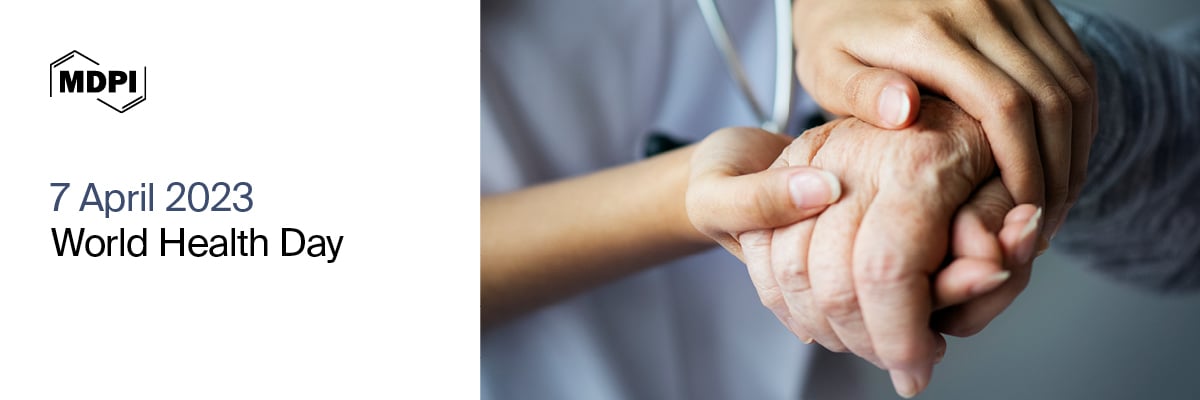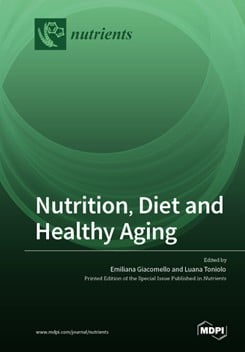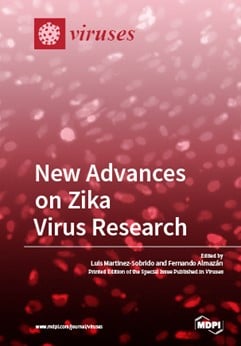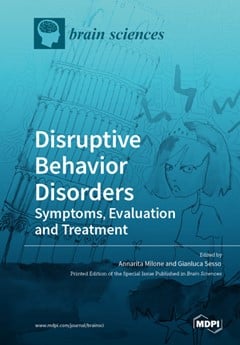
Journal Menu
► ▼ Journal Menu-
- Toxics Home
- Aims & Scope
- Editorial Board
- Reviewer Board
- Topical Advisory Panel
- Instructions for Authors
- Special Issues
- Topics
- Sections & Collections
- Article Processing Charge
- Indexing & Archiving
- Editor’s Choice Articles
- Most Cited & Viewed
- Journal Statistics
- Journal History
- Journal Awards
- Conferences
- Editorial Office
Journal Browser
► ▼ Journal BrowserNeed Help?
Announcements
6 June 2023
Interview with Dr. Chris Douvris—Winner of the Toxics 2022 Outstanding Reviewer Award

Name: Dr. Chris Douvris
Email: cdouvris@nyit.edu
Short Biography: Dr. Chris Douvris is a native of Athens, Greece, and serves as an Associate Professor of chemistry at the New York Institute of Technology in Long Island, New York, USA. He received his B.Sc. from the University of Ioannina, Greece, with a dissertation on analytical chemistry, and he also earned M.Sc. and Ph.D. degrees at the University of Illinois, Chicago, in inorganic chemistry. Prior to his current position, he served as an Assistant and Associate Professor at McNeese State University in Lake Charles, Louisiana, USA. In his free time, Chris enjoys playing sports and spending time with his baby daughter, Anna.
We want to congratulate Dr. Chris Douvris for winning the Toxics 2022 Outstanding Reviewer Award.
The following is an interview with Dr. Chris Douvris:
1. Could you give a brief introduction of yourself to the readers?
I currently serve as an Associate Professor of chemistry at the New York Institute of Technology, USA, and before that I served as an Assistant and Associate Professor at McNeese State University in Louisiana, USA. In addition to teaching chemistry courses to future medical students of our institution, I have a group of students who conduct research in chemistry.
2. What is the focus of your current research, and why did you choose this research field?
One direction of my research is analytical chemistry, with a focus on ICP-MS and ICP-OES analyses of various samples, and another one is inorganic chemistry, with a focus on the synthesis, characterization, and applications of inorganic compounds. I chose these two areas because I was always fascinated with the synthesis of new molecules, as well as the fact that I was always curious about the exact concentrations of trace elements in important environmental samples.
3. Could you please share with us your experience as a reviewer for Toxics?
My experience and motivation are that many manuscripts have been substantially improved after the review process. The reviewing process is a great benefit for authors in terms of publishing the best version of their work. The authors and reviewers should always work together for the improvement of a given manuscript.
4. What qualities do you think reviewers need?
The reviewers need to know the components of an ideal scientific presentation in the form of an article, as well as the experimental data that are needed to make a presentation credible. For example, a trace element determination work needs to have validation of the collected data via an appropriate reference standard. I believe the experiment is the most important component of a scientific article and the reviewer should first focus on that.
22 May 2023
Meet Us at the 18th International Conference on Chemistry and the Environment, 11–15 June, Venice, Italy
The 18th International Conference on Chemistry and the Environment will be held from 11 to 15 June 2023, in Venice, Italy. The conference is organized by the Environmental Chemistry Division of the Società Chimica Italiana and the University Ca’ Foscari of Venice.
Topics include:
- Analysis and modeling of environmental contaminants;
- Impacts of climate change on local to global circulation of chemicals;
- Nano-size particulate materials and microplastics in the environment;
- Atmospheric pollution;
- Environmental risk and impact assessment;
- Emerging contaminants;
- Water pollution;
- Innovations in water and wastewater treatment;
- Biotransformation of organic pollutants.
The following MDPI journals will be represented:
- Toxics;
- Atmosphere;
- Environment;
- Membranes;
- Sustainability;
- Compounds;
- Heritage;
- Water;
- ChemEngineering.
If you are attending this conference, please feel free to start an online conversation with us. Our delegates look forward to meeting you in person and answering any questions you may have. For more information about the conference, please visit the following link: https://icce2023.com/.
27 April 2023
Toxics | 10 Recommended Reviews in Q1 2023
1. “Epigenetics and Methylmercury-Induced Neurotoxicity, Evidence from Experimental Studies”
by Tao Ke, Alexey A. Tinkov, Anatoly V. Skalny, Abel Santamaria, Joao B. T. Rocha, Aaron B. Bowman, Wen Chen and Michael Aschner
Toxics 2023, 11(1), 72; https://doi.org/10.3390/toxics11010072
Full text available online: https://www.mdpi.com/2305-6304/11/1/72
2. “The Panoramic View of Ecuadorian Soil Nutrients (Deficit/Toxicity) from Different Climatic Regions and Their Possible Influence on the Metabolism of Important Crops”
by Raluca A. Mihai, Erly J. Melo Heras, Vanessa A. Terán Maza, Iván A. Espinoza Caiza, Eliza A. Pinto Valdiviezo and Rodica D. Catana
Toxics 2023, 11(2), 123; https://doi.org/10.3390/toxics11020123
Full text available online: https://www.mdpi.com/2305-6304/11/2/123
3. “Antimicrobial and the Resistances in the Environment: Ecological and Health Risks, Influencing Factors, and Mitigation Strategies”
by Weitao Wang, You Weng, Ting Luo, Qiang Wang, Guiling Yang and Yuanxiang Jin
Toxics 2023, 11(2), 185; https://doi.org/10.3390/toxics11020185
Full text available online: https://www.mdpi.com/2305-6304/11/2/185
4. “Outlining Potential Biomarkers of Exposure and Effect to Critical Minerals: Nutritionally Essential Trace Elements and the Rare Earth Elements”
by Jill A. Jenkins, MaryLynn Musgrove and Sarah Jane O. White
Toxics 2023, 11(2), 188; https://doi.org/10.3390/toxics11020188
Full text available online: https://www.mdpi.com/2305-6304/11/2/188
5. “Neurobehavioral Effects of Low-Dose Chronic Exposure to Insecticides: A Review”
by Laura Maria Antonangeli, Saniya Kenzhebekova and Claudio Colosio
Toxics 2023, 11(2), 192; https://doi.org/10.3390/toxics11020192
Full text available online: https://www.mdpi.com/2305-6304/11/2/192
6. “Recent Progress on Ex Situ Remediation Technology and Resource Utilization for Heavy Metal Contaminated Sediment”
by Qinqin Xu and Boran Wu
Toxics 2023, 11(3), 207; https://doi.org/10.3390/toxics11030207
Full text available online: https://www.mdpi.com/2305-6304/11/3/207
7. “Pancreas–Liver–Adipose Axis: Target of Environmental Cadmium Exposure Linked to Metabolic Diseases”
by Diana Moroni-González, Victor Enrique Sarmiento-Ortega, Alfonso Diaz, Eduardo Brambila and Samuel Treviño
Toxics 2023, 11(3), 223; https://doi.org/10.3390/toxics11030223
Full text available online: https://www.mdpi.com/2305-6304/11/3/223
8. “Caenorhabditis elegans as a Prediction Platform for Nanotechnology-Based Strategies: Insights on Analytical Challenges”
by Priscila Gubert, Greici Gubert, Ronei Cardoso de Oliveira, Isabel Cristina Oliveira Fernandes, Iverson Conrado Bezerra, Bruna de Ramos, Milena Ferreira de Lima, Daniela Teixeira Rodrigues, Adriana Farias Nunes da Cruz, Ernesto Chaves Pereira et al.
Toxics 2023, 11(3), 239; https://doi.org/10.3390/toxics11030239
Full text available online: https://www.mdpi.com/2305-6304/11/3/239
9. “Per- and Polyfluoroalkyl Substances and Breastfeeding as a Vulnerable Function: A Systematic Review of Epidemiological Studies”
by Amalie Timmermann, Oyemwenosa N. Avenbuan, Megan E. Romano, Joseph M. Braun, Janne S. Tolstrup, Laura N. Vandenberg and Suzanne E. Fenton
Toxics 2023, 11(4), 325; https://doi.org/10.3390/toxics11040325
Full text available online: https://www.mdpi.com/2305-6304/11/4/325
10. “Contaminants of Emerging Concern (CECs) and Male Reproductive Health: Challenging the Future with a Double-Edged Sword”
by Daniel Marcu, Shannen Keyser, Leslie Petrik, Samuel Fuhrimann and Liana Maree
Toxics 2023, 11(4), 330; https://doi.org/10.3390/toxics11040330
Full text available online: https://www.mdpi.com/2305-6304/11/4/330
19 April 2023
Meet Us at the 17th Persistent Organic Pollutants Forum and Chemical Environmental Safety Conference, 17–19 May 2023, Qingdao, China

Toxics (ISSN: 2305-6304) will be attending the 17th Persistent Organic Pollutants Forum and Chemical Environmental Safety Conference as an exhibitor. This meeting will be held in Qingdao, China, from 17 to 19 May 2023.
The Persistent Organic Pollutants Forum and Chemical Environmental Safety Conference (hereinafter referred to as the POPs Forum) was initiated by the Persistent Organic Pollutants Research Center of Tsinghua University in 2006, in cooperation with the Office of the National Coordination Group for the Implementation of the Stockholm Convention of the Ministry of Ecology and Environment. A series of annual meetings co-sponsored by the Chinese Society of Environmental Sciences and the Persistent Organic Pollutants Professional Committee had been successfully held for 16 sessions by 2021. The POPs Forum has become a forum for academia, management, and industry in the field of POPs in China to brainstorm and contemplate countermeasures, review the international trends of POPs compliance and China's progress, discuss POPs research hotspots and development trends, and showcase high-tech and advanced products for POPs analysis and control. It is a high-level communication platform.
The forum focuses on new pollutant treatment and invites domestic and foreign experts from various fields of government, industry, academia, and research to discuss and exchange ideas together.
The following MDPI journals will be represented:
- Toxics (leading);
- Water;
- JoX;
- Pollutants.
If you are attending this conference, please feel free to start a conversation with us. Our delegates look forward to meeting you in person and answering any questions you may have. For more information about the conference and our booth, please visit: https://popsforum2022.scievent.com/.
11 April 2023
Meet Us at the 2023 Science and Technology Annual Meeting of Chinese Society for Environmental Sciences, 22–23 April 2023, Nanchang, China

MDPI will be attending the 2023 Science and Technology Annual Meeting of Chinese Society for Environmental Sciences, which will be held from 22 to 23 April 2023, in Nanchang, China. The theme of the annual meeting is “Develop green and low-carbon, build a beautiful China”.
The annual meeting has arranged for an opening ceremony and specially invited keynote speeches, subsession seminars, high-end forums, special sessions for young scientists, poster exchanges, environmental protection science and technology achievement exhibitions, special events, etc. A total of 1800 delegates are expected to attend. Four academicians and other well-known experts are expected to deliver keynote speeches on climate change, the prevention and control of atmospheric, water, and soil environmental pollution, and environmental management science as well as technology. The invited keynote speeches touch on fields such as achievements in transformation.
The following MDPI journals will be represented:
- Sustainability;
- Toxics;
- Energies;
- Climate;
- Land;
- Minerals;
- Resources;
- Forests;
- Remote Sensing;
- Earth;
- Clean Technologies.
7 April 2023
Toxics | Top 10 Most Cited Papers on Human Health
World Health Day, this year marked on 7 April, is an opportunity to look back at public health successes and to motivate action to tackle health challenges. On this occasion, we would like to post 10 most cited papers on human health published in Toxics (ISSN: 2305-6304) in 2021 and 2022. Hope you enjoy reading them.
1. “Heavy Metals and Pesticides Toxicity in Agricultural Soil and Plants: Ecological Risks and Human Health Implications”
by Ahmed Alengebawy, Sara Taha Abdelkhalek, Sundas Rana Qureshi and Man-Qun Wang
Toxics 2021, 9(3), 42; https://doi.org/10.3390/toxics9030042
Available online: https://www.mdpi.com/2305-6304/9/3/42
2. “Nanopesticides in Agriculture: Benefits and Challenge in Agricultural Productivity, Toxicological Risks to Human Health and Environment”
by Marco Chaud, Eliana B. Souto, Aleksandra Zielinska, Patricia Severino, Fernando Batain, Jose Oliveira-Junior and Thais Alves
Toxics 2021, 9(6), 131; https://doi.org/10.3390/toxics9060131
Available online: https://www.mdpi.com/2305-6304/9/6/131
3. “PFAS Molecules: A Major Concern for the Human Health and the Environment”
by Emiliano Panieri, Katarina Baralic, Danijela Djukic-Cosic, Aleksandra Buha Djordjevic and Luciano Saso
Toxics 2022, 10(2), 44; https://doi.org/10.3390/toxics10020044
Available online: https://www.mdpi.com/2305-6304/10/2/44
4. “Levels of Phthalates, Bisphenol-A, Nonylphenol, and Microplastics in Fish in the Estuaries of Northern Taiwan and the Impact on Human Health”
by I-Cheng Lu, How-Ran Chao, Wan-Nurdiyana-Wan Mansor, Chun-Wei Peng, Yi-Chyun Hsu, Tai-Yi Yu, Wei-Hsiang Chang and Lung-Ming Fu
Toxics 2021, 9(10), 246; https://doi.org/10.3390/toxics9100246
Available online: https://www.mdpi.com/2305-6304/9/10/246
5. “Metals Bioaccumulation in 15 Commonly Consumed Fishes from the Lower Meghna River and Adjacent Areas of Bangladesh and Associated Human Health Hazards”
by Mohammad Belal Hossain, Fatema Tanjin, M. Safiur Rahman, Jimmy Yu, Shirin Akhter, Md Abu Noman and Jun Sun
Toxics 2022, 10(3), 139; https://doi.org/10.3390/toxics10030139
Available online: https://www.mdpi.com/2305-6304/10/3/139
6. “Comparison of the Potential Ecological and Human Health Risks of Heavy Metals from Sewage Sludge and Livestock Manure for Agricultural Use”
by Baoling Duan and Qiang Feng
Toxics 2021, 9(7), 145; https://doi.org/10.3390/toxics9070145
Available online: https://www.mdpi.com/2305-6304/9/7/145
7. “Polychlorinated Biphenyls (PCBs) in the Environment: Occupational and Exposure Events, Effects on Human Health and Fertility”
by Luigi Montano, Concetta Pironti, Gabriella Pinto, Maria Ricciardi, Amalia Buono, Carlo Brogna, Marta Venier, Marina Piscopo, Angela Amoresano and Oriana Motta
Toxics 2022, 10(7), 365; https://doi.org/10.3390/toxics10070365
Available online: https://www.mdpi.com/2305-6304/10/7/365
8. “Ecological and Human Health Risk Assessment of Heavy Metals in Cultured Shrimp and Aquaculture Sludge”
by Salma Sultana, Mohammad Belal Hossain, Tasrina R. Choudhury, Jimmy Yu, Md. Sohel Rana, Mohammad Abu Noman, M. Mozammal Hosen, Bilal Ahamad Paray and Takaomi Arai
Toxics 2022, 10(4), 175; https://doi.org/10.3390/toxics10040175
Available online: https://www.mdpi.com/2305-6304/10/4/175
9. “Local Toxicity of Biocides after Direct and Aerosol Exposure on the Human Skin Epidermis and Airway Tissue Models”
by Nahyun Lee, Dae Yong Jang, Do Hyeon Lee, Haengdueng Jeong, Ki Taek Nam, Dal-Woong Choi and Kyung-Min Lim
Toxics 2021, 9(2), 29; https://doi.org/10.3390/toxics9020029
Available online: https://www.mdpi.com/2305-6304/9/2/29
10. “Relationships between Long-Term Ozone Exposure and Allergic Rhinitis and Bronchitic Symptoms in Chinese Children”
by Pei-En Zhou, Zhengmin (Min) Qian, Stephen Edward McMillin, Michael G. Vaughn, Zhong-Yue Xie, Yu-Jie Xu, Li-Zi Lin, Li-Wen Hu, Bo-Yi Yang, Xiao-Wen Zeng et al.
Toxics 2021, 9(9), 221; https://doi.org/10.3390/toxics9090221
Available online: https://www.mdpi.com/2305-6304/9/9/221
7 April 2023
Toxics | Recruiting Editorial Board Members for Section “Reproductive and Developmental Toxicity”
The “Reproductive and Developmental Toxicity” Section of Toxics (ISSN: 2305-6304) is recruiting Editorial Board Members. You can check the existing Editorial Board Members by visiting the following link: https://www.mdpi.com/journal/toxics/sections/reproductive_developmental_toxicity.
The main responsibilities of the Section Editorial Board Members are as follows:
- Providing scientific supervision for the Section;
- Inviting distinguished scientists to join the Editorial Board;
- Suggesting hot topics for Special Issues;
- Making decisions about the suitability of a paper to enter the peer review process and about its acceptance at the end of the process;
- Promoting the Section, recommending international conference cooperation, and assisting this Section in holding physical/electronic conferences;
- Providing feedback and suggesting improvements to the journal.
The “Reproductive and Developmental Toxicity” Section of Toxics focuses on the presentation of studies on the reproductive and developmental toxicity of environmental exposure to toxicants. This Section invites the submission of high-quality manuscripts reporting on investigations of all aspects of relationships, as well as their biological mechanisms, between toxicant exposure and outcomes of sexual function in addition to fertility in adult males and females, as well as the development of offspring. The exposures may include, but are not limited to, environmental or occupational exposure to pesticides, industrial chemicals, metals, air pollution, emerging environmental pollutants, etc. This Section also welcomes submissions on the exploration and application of frontier experimental methods as well as statistical models in toxicology. Reviews and commentaries are also welcome in this Section.
For more information about this Section and publishing in Toxics, please see the Section’s webpage. To apply, please send your CV and a cover letter, expressing your suitability for the role and your vision for the journal, to the Toxics Editorial Office (toxics@mdpi.com).
In order to be considered, all applications must be received by 30 June 2023.
7 April 2023
World Health Day–Health for All

On 7 April 2023—World Health Day, the World Health Organization (WHO) will observe its 75th anniversary. In 1948, countries of the world came together and founded the WHO to promote health, keep the world safe, and serve the vulnerable, so that everyone, everywhere, can attain the highest level of health and well-being. The WHO’s 75th anniversary is an opportunity to look back at public health successes that have improved quality of life over the last seven decades. It is also an opportunity to motivate action to tackle the health challenges of today and tomorrow. In order to encourage everyone to understand health and pay attention to health, we have also curated a list of publications on topics related to universal health coverage, healthy diet, and mental health. We also want to remind everyone that all research published in MDPI journals is available in an open access format, allowing practitioners, policy makers, and people around the world to access the latest scientific knowledge to build upon and share. Although we still have a long way to go to achieve universal health, this day also provides an opportunity to celebrate the progress made and inspire further action toward a more just and equitable world. Join us on a journey at MDPI to achieve Health for All.
|
Journal Recommendation |
|||

- The Antioxidant Potential of the Mediterranean Diet as a Predictor of Weight Loss after a Very Low-Calorie Ketogenic Diet (VLCKD) in Women with Overweight and Obesity
Antioxidants 2023, 12(1), 18; https://doi.org/10.3390/antiox12010018
- Effectiveness of Non-Contact Dietary Coaching in Adults with Diabetes or Prediabetes Using a Continuous Glucose Monitoring Device: A Randomized Controlled Trial
Healthcare 2023, 11(2), 252; https://doi.org/10.3390/healthcare11020252
- The Association between Advanced Liver Fibrosis and Mortality Is Modified by Dietary Quality among Korean Adults: Results from the Korea National Health and Nutrition Examination Survey with Mortality Data
Nutrients 2023, 15(6), 1501; https://doi.org/10.3390/nu15061501
- Physical Exercise and Diet: Regulation of Gut Microbiota to Prevent and Treat Metabolic Disorders to Maintain Health
Nutrients 2023, 15(6), 1539; https://doi.org/10.3390/nu15061539
|
Section: Nutrition and Public Health |
Special Issue: Dietary Antioxidants and Cardiovascular Health |

- Modelling and Prediction of the Spread of COVID-19 in Cameroon and Assessing the Governmental Measures (March–September 2020)
COVID 2021, 1(3), 622-644; https://doi.org/10.3390/covid1030052
- SARS-CoV-2 Infection in Health Care Workers of Trieste (North-Eastern Italy), 1 October 2020–7 February 2022: Occupational Risk and the Impact of the Omicron Variant
Viruses 2022, 14(8), 1663; https://doi.org/10.3390/v14081663
- Vaccination Coverage during Childhood and Adolescence among Undergraduate Health Science Students in Greece
Children 2022, 9(10), 1553; https://doi.org/10.3390/children9101553
- Determinants of Equity in Coverage of Measles-Containing Vaccines in Wales, UK, during the Elimination Era
Vaccines 2023, 11(3), 680; https://doi.org/10.3390/vaccines11030680
|
Section: School Health |
Topical Collection: Poxviruses |

- Sex Differences in Substance Use, Prevalence, Pharmacological Therapy, and Mental Health in Adolescents with Attention-Deficit/Hyperactivity Disorder (ADHD)
Brain Sci. 2022, 12(5), 590; https://doi.org/10.3390/brainsci12050590
- Impact on Students of the Act–Belong–Commit Mentally Healthy Schools Framework
Children 2023, 10(3), 548; https://doi.org/10.3390/children10030548
- Psychological Health and Drugs: Data-Driven Discovery of Causes, Treatments, Effects, and Abuses
Toxics 2023, 11(3), 287; https://doi.org/10.3390/toxics11030287
- Characterizing Touch Discrimination Impairment from Pooled Stroke Samples Using the Tactile Discrimination Test: Updated Criteria for Interpretation and Brief Test Version for Use in Clinical Practice Settings
Brain Sci. 2023, 13(4), 533; https://doi.org/10.3390/brainsci13040533
|
Special Issue: Disruptive Behavior Disorders: Symptoms, Evaluation and Treatment |
Special Issue: Organophosphate-Induced Neurotoxicity: Countermeasures, Mechanisms, and Physiology |

30 March 2023
Toxics Webinar | Existing Formulations of Pesticides: More Toxic Than Active Ingredients? 26 May 2023

Today, pesticide toxicology is essentially based on the toxicity of active ingredients. Could this be wrong? Since numerous discoveries have recently been made on the toxicity of pesticide formulations in relation the declared active ingredients at different levels, from environment to animal and human cells, and in organs or in vivo, are new regulations necessary? After a presentation of these discoveries, new regulations can be proposed by participants of this webinar.
Date: 26 May 2023
Time: 2:00pm CEST
Register now for free!
Webinar Chairs and Keynote Speakers:
Prof. Dr. Gilles-Eric Seralini
Institute of Biology, University of Caen Normandy, Network on Risks, Quality and Sustainable Environment MRSH, Esplanade de la Paix, CS 14032 Caen CEDEX 5, France
Dr. Robin Mesnage
Department of Medical and Molecular Genetics, King’s College London, London, UK
Buchinger Wilhelmi Clinic, Wilhelmi-Beck-Straße 27, 88662 Überlingen, Germany
Prof. Louise Vandelac
Department of Sociology and Institute for Environmental Sciences, University of Quebec in Montreal, Quebec, Canada
Dr. Marie-Hélène Bacon
Ecohealth Research Collective on Pesticides, Policies and Alternatives (CREPPA), Institute of Environmental Sciences, University of Quebec in Montreal, Quebec, Canada
|
Speaker/Presentation |
Time in CEST |
|
Prof. Dr. Gilles-Eric Seralini |
2:00–2:05 pm |
|
Prof. Dr. Gilles-Eric Seralini |
2:05–2:15 pm |
|
Dr Robin Mesnage |
2:15–2:25pm |
|
Prof Louise Vandelac |
2:25–2:35pm |
|
Dr Marie-Hélène Bacon |
2:35–2:45 pm |
|
Q&A Session |
2:45–3:35 pm |
|
Closing of Webinar |
3:35–3:45 pm |
Relevant Special Issue:
“Pesticides in Formulations: Toxicological and Regulatory Assessments, New Developments”
Guest Editor: Prof. Dr. Gilles-Eric Seralini
Deadline for manuscript submissions: 30 June 2023
This is a free webinar. After registering, you will receive a confirmation email containing information on how to join the webinar. Registrations with academic institutional email addresses will be prioritized. Certificates of attendance will be delivered to those who attend the live webinar.
Can’t attend? Register anyway and we’ll let you know when the recording is available to watch.
30 March 2023
Meet Us at the European Human Genetics Conference 2023 (ESHG 2023), 10–13 June 2023, Glasgow, UK

MDPI will be attending the European Human Genetics Conference 2023 (ESHG 2023), held in Glasgow, UK, from 10 to 13 June 2023.
The following MDPI journals will be represented:
If you plan on attending this conference, feel free to stop by our booth #824. Our delegates look forward to meeting you in person to answer any questions you may have.
For more information about the conference, please visit the following link: https://2023.eshg.org/.






















